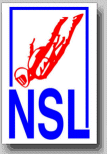
National
Skydiving
League
226 Pecan Street
Deland FL 32724
tel: (386) 801-0804
© 2003 - 2025
All Rights Reserved


226 Pecan Street
Deland FL 32724
tel: (386) 801-0804
© 2003 - 2025
All Rights Reserved

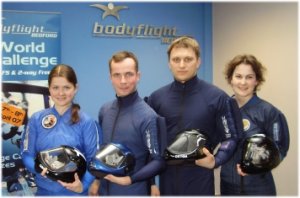
Egor Gusev (Inside Center), Andrei Kharitonov (Outside Center), Katya Kharitonova (Point) and Anna Panasyuk (Tail) started out with a 16.6 average at the World Challenge 2007 and pumped the performance and scoring level up to a 22.2 average last year. The Russian team caught the attention of the NSL News already before Kaktus Hunter traveled to Bedford in March 2008.
The story on 16 February 2008 (Archives > 2008 > News > Search for "Kaktus Hunter") introduced the team and its history. Several additional NSL News stories in 2008 included information of Kaktus Hunter's progression throughout the competition season.
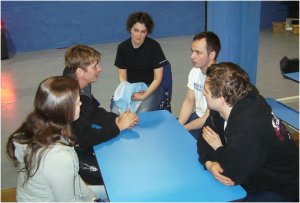
The windtunnel camp in February will bring Kaktus Hunter to the USA. The Russian team has scheduled ten hours of flying time at the Paraclete XP windtunnel in Raeford, North Carolina. Airspeed Odyssey's Center Inside, Andy Delk, will be working with the team in Raeford. He was already Kaktus Hunter's coach in 2008.
The extensive tunnel training and Andy Delk's coaching will prepare the team very well for the World Challenge 2009. The 22.2 average of 2008 was already quite impressive, but it seems as if Kaktus Hunter might be able to score significantly higher this year. The 2009 season might become the year where the relatively young team closes in on the Russian top teams, such as Sky Panthers, Black Cat or Cross Road.
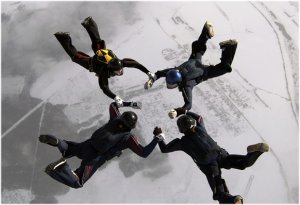
The real outdoor training will begin after the World Challenge 2009 and includes a trip to Arizona where some of the team members usually attend the Arizona Challenge, as well. The windtunnel training will still continue. Russia has now a well functioning windtunnel in Moscow available for the Russian teams.
The Russian Nationals 2009 are scheduled for August 1 - 6, the event takes place in Menzelinsk this year. It is a skydiving center quite far away from Moscow. It takes two hours to fly from Moscow to Kazan. The additional 150 miles to the skydiving center need to be traveled by car or train. The Menzelinsk management and ownership is bidding to host the World Championship of Formation Skydiving in 2010 and wants to use the Russian Nationals 2009 as a rehearsal and promotional effort.
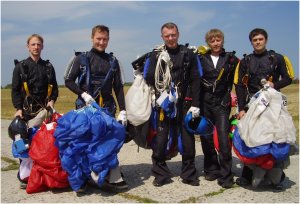
The team plans to have completed 200 outdoor training jumps by then, which would beat the 140 training jumps of 2008. Kaktus Hunter posted an 18.7 average at the Russian Cup in August.
The team has much higher goals this year, as Egor Gusev confirmed. Kaktus Hunter is aiming at a scoring average between 25 and 26 at the World Challenge 2009, which would bring the Russian team close to the medal rankings of the past years.
The goal of a 22- to 23-point outdoor average at the World Cup in August/September 2009 would seriously challenge the other Russian top teams. It could become a very interesting competition season in Russia this year.